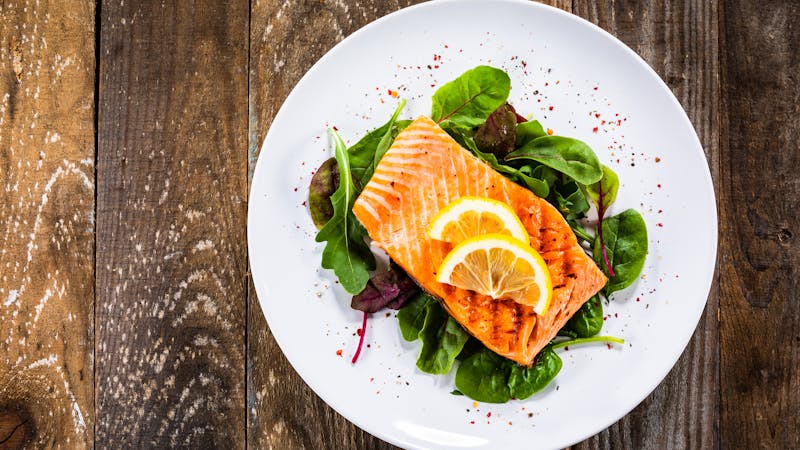Study shows high-protein diets are better for fat loss

High-protein diets are better for fat mass loss than low-glycemic diets, according to a new study published in the journal Nutrients. This finding has significant implications for healthy weight loss.
Why? Not all diets are the same, and not all weight loss is the same. If you are interested in weight loss, you should aim to lose weight in the healthiest way possible.
That means mainly losing fat mass instead of lean body mass, improving your metabolic health, and making sure you can maintain your dietary lifestyle long-term.
Eating enough protein may be an essential ingredient for ensuring your weight loss is healthy.
The study in Nutrients randomized 35 overweight or obese adults without diabetes to either a high-protein diet (30% calories from protein, 40% carbs, and 30% fat) or a low-glycemic index diet (20% protein, 50% carbs, and 30% fat) for four weeks.
The subjects then switched to the other diet during the remaining four weeks. Both diets were energy-restricted, providing a 30% calorie reduction from daily energy needs.
Both groups lost similar amounts of weight, about four kilos (8.8 pounds) in the first four weeks and two kilos (4.4 pounds) in the second four weeks.
However, those who started with the high-protein diet lost more fat mass than those who started with the low-glycemic diet — 4.6 kilos (10 pounds) versus 2.2 kilos (4.8 pounds). And those on the high-protein diet showed better maintenance of lean muscle mass.
Based on these study results, we can conclude that higher protein intake is beneficial for losing fat mass and retaining lean body mass, even when part of an energy-restricted diet.
But this study may have underestimated the benefits of a high-protein diet in a real-world scenario.
The study prescribed short-term calorie restriction for both dietary patterns. Since the calorie reduction was the same, it makes sense that the weight loss was also equivalent. That equation usually holds true — at least in the short-term.
But for long-term success, a diet that improves feelings of fullness and limits hunger so that calories are reduced naturally is essential.
A trial, such as the one from Nutrients, that mandates calorie restriction could negate one of the benefits of high-protein diets — which is that more protein usually leads to greater satiety and natural calorie restriction.1 A high-protein diet may provide the “best of both worlds” with better satiety and healthier weight loss than lower protein approaches.
You can read more about the importance of protein and how to get more in your diet in our numerous guides, including:
- How much protein should you eat?
- Protein on a low-carb or keto diet
- High-protein foods
- 21 high-protein snacks, ranked
Thanks for reading,
Bret Scher, MD FACC
Earlier
High insulin precedes obesity, a new study suggests
Short-term fasting and LCHF are effective treatments for fatty liver
Protein and satiety
American Journal of Clinical Nutrition 2008: Protein, weight management, and satiety [overview article; ungraded]
Increasing protein from 15% to 30% resulted in a significant caloric drop.
American Journal of Clinical Nutrition 2005: A high-protein diet induces sustained reductions in appetite, ad libitum caloric intake, and body weight despite compensatory changes in diurnal plasma leptin and ghrelin concentrations [nonrandomized study, weak evidence]
Protein also increases thermogenesis.
Journal of the American College of Nutrition 2004: The effects of high protein diets on thermogenesis, satiety and weight loss: a critical review [overview article; ungraded] ↩